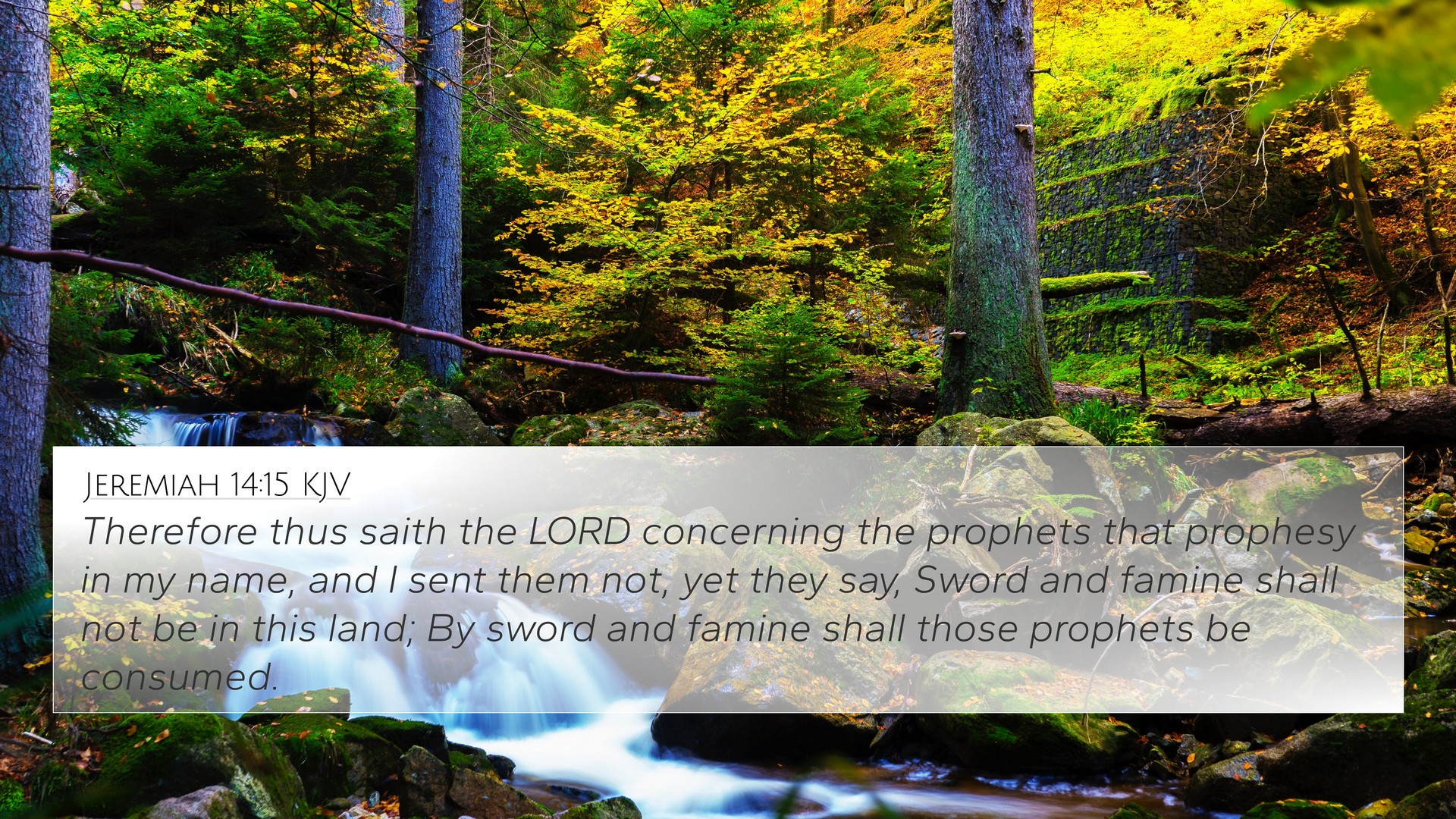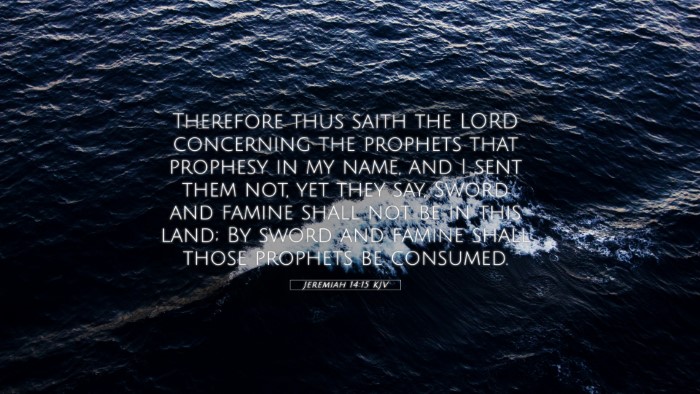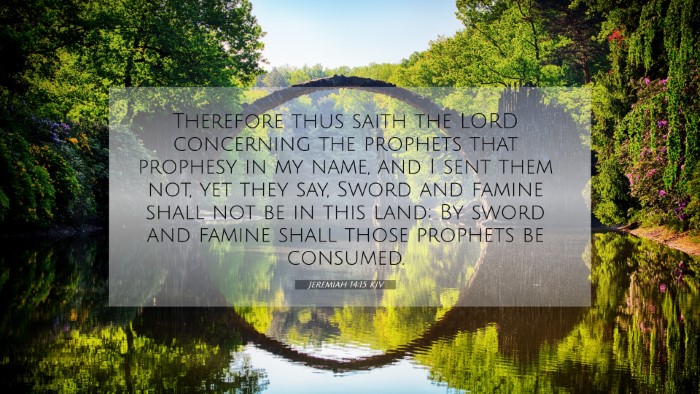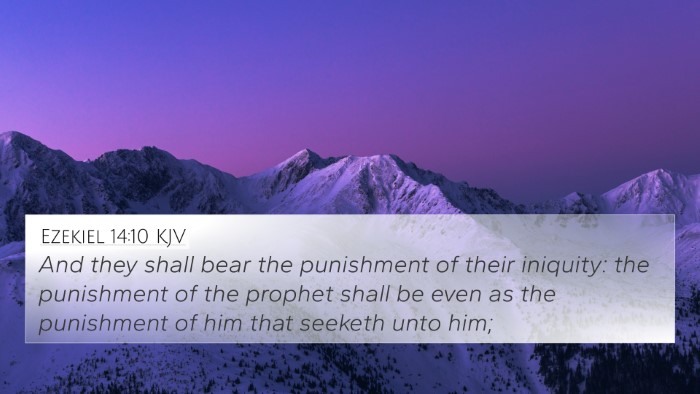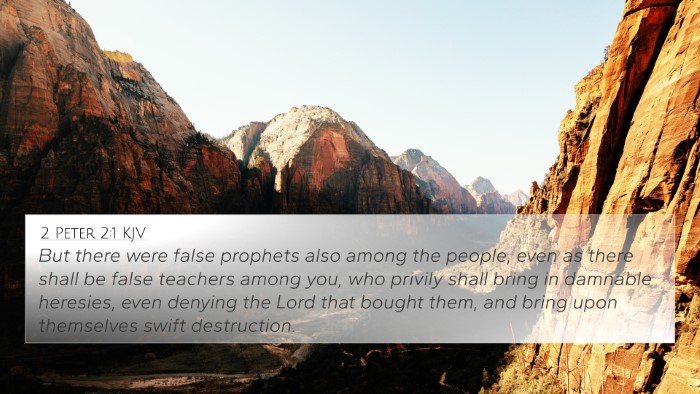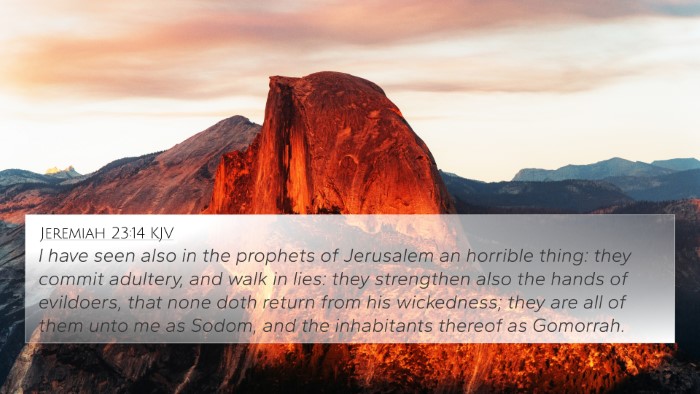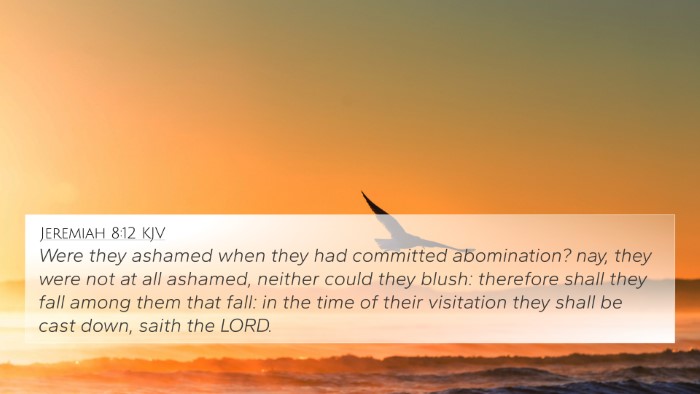Understanding Jeremiah 14:15
Jeremiah 14:15 states:
"Therefore thus saith the Lord concerning the prophets that prophesy in my name, and I sent them not, yet they say, Sword and famine shall not be in this land; By sword and famine shall those prophets be consumed."
This verse highlights a serious warning from the Lord regarding false prophets who were misleading the people of Judah. In this analysis, we will draw from various public domain commentaries, including Matthew Henry, Albert Barnes, and Adam Clarke, to deepen our understanding of this important scripture.
Verse Meaning and Analysis
Jeremiah was called to be a prophet during a time of significant turmoil and impending judgment on Judah. The context of this verse addresses false prophets who were declaring peace and prosperity while denying the consequences of the nation's sin.
Insights from Commentaries
-
Matthew Henry:
Henry emphasizes the gravity of false prophecies, suggesting that they stem from a desire to gain favor with the people rather than a true calling from God. This deception leads to dire consequences, which are described poignantly in this verse.
-
Albert Barnes:
Barnes points out that these false prophets contradicted the true messages of the Lord, offering false hope to the people. Their statements about safety in the midst of calamity are a stark warning against those who ignore God's true message.
-
Adam Clarke:
Clarke notes the severity of divine retribution upon these prophets, emphasizing the principle that those who lead others astray will face judgment themselves. The mention of "sword and famine" illustrates the tangible consequences of their misleading words.
Thematic Connections
This verse serves as a critical junction within a broader discourse on the theme of prophetic integrity, accountability, and the serious implications of misleading God's people. The connections between Bible verses regarding false prophets can further enrich our understanding.
Bible Verse Cross-References
- Deuteronomy 18:20-22: This passage outlines the consequences for false prophets, establishing a benchmark for assessing prophetic credibility.
- Matthew 7:15-20: Jesus warns about false prophets, emphasizing that they can be recognized by their fruits (actions). This verse parallels Jeremiah 14:15 by illustrating the results of deceitfulness.
- Jeremiah 23:1-2: God further condemns the shepherds of Israel for leading the flock astray, reflecting a similar theme of accountability for leadership.
- Ezekiel 13:1-3: In this text, God rebukes false prophets who prophesy peace when disaster is looming, establishing a clear connection to Jeremiah's warnings.
- 1 John 4:1: The New Testament advises believers to test the spirits, resonating with the need for discernment regarding whom to trust as genuine messengers of God.
- 2 Peter 2:1-3: Peter cautions against false teachers who secretly introduce destructive heresies, paralleling the same concern for integrity in teaching God’s message.
- Micah 3:5: Micah criticizes those who lead the people astray by promising peace when there is none, reinforcing the message found in Jeremiah's warning.
- Isaiah 9:16: Isaiah notes that the leaders of this people are causing them to err, highlighting a recurring theme of leadership misconduct affecting the populace.
- Hosea 4:6: God's lamentation that His people are destroyed for lack of knowledge draws a direct line to the consequences of following false teachings.
- Romans 16:17-18: In the New Testament, Paul warns against those causing divisions and offenses contrary to sound doctrine, mirroring Jeremiah’s concern over false prophecies.
Implications for Today
The reflection of Jeremiah 14:15 provides critical insights for modern readers and believers. It underscores the importance of discernment in spiritual matters and warns against accepting teachings that contradict God’s Word.
By fostering a habit of cross-referencing Biblical texts and studying themes within scripture, individuals can deepen their understanding and safeguard against misleading doctrines. Utilizing tools such as a Bible concordance and Bible cross-reference guide can prove invaluable for this purpose.
Conclusion
In summary, Jeremiah 14:15 serves as a powerful reminder of the need for vigilance in our spiritual journey, encouraging believers to seek out the truth and align themselves with God’s voice as revealed in scripture. The interconnected nature of God's word enables us to find solace and guidance, affirming the importance of scriptural cross-referencing for comprehensive understanding.
